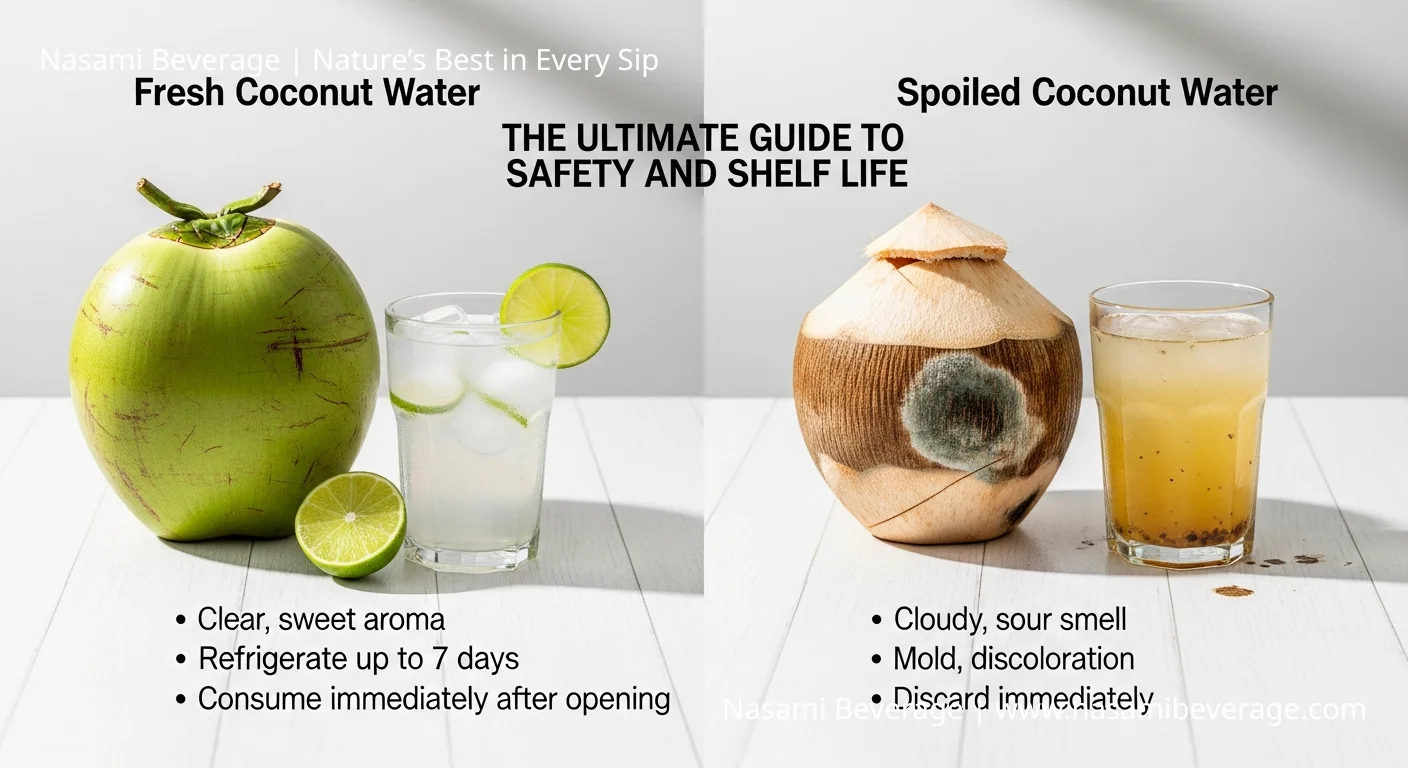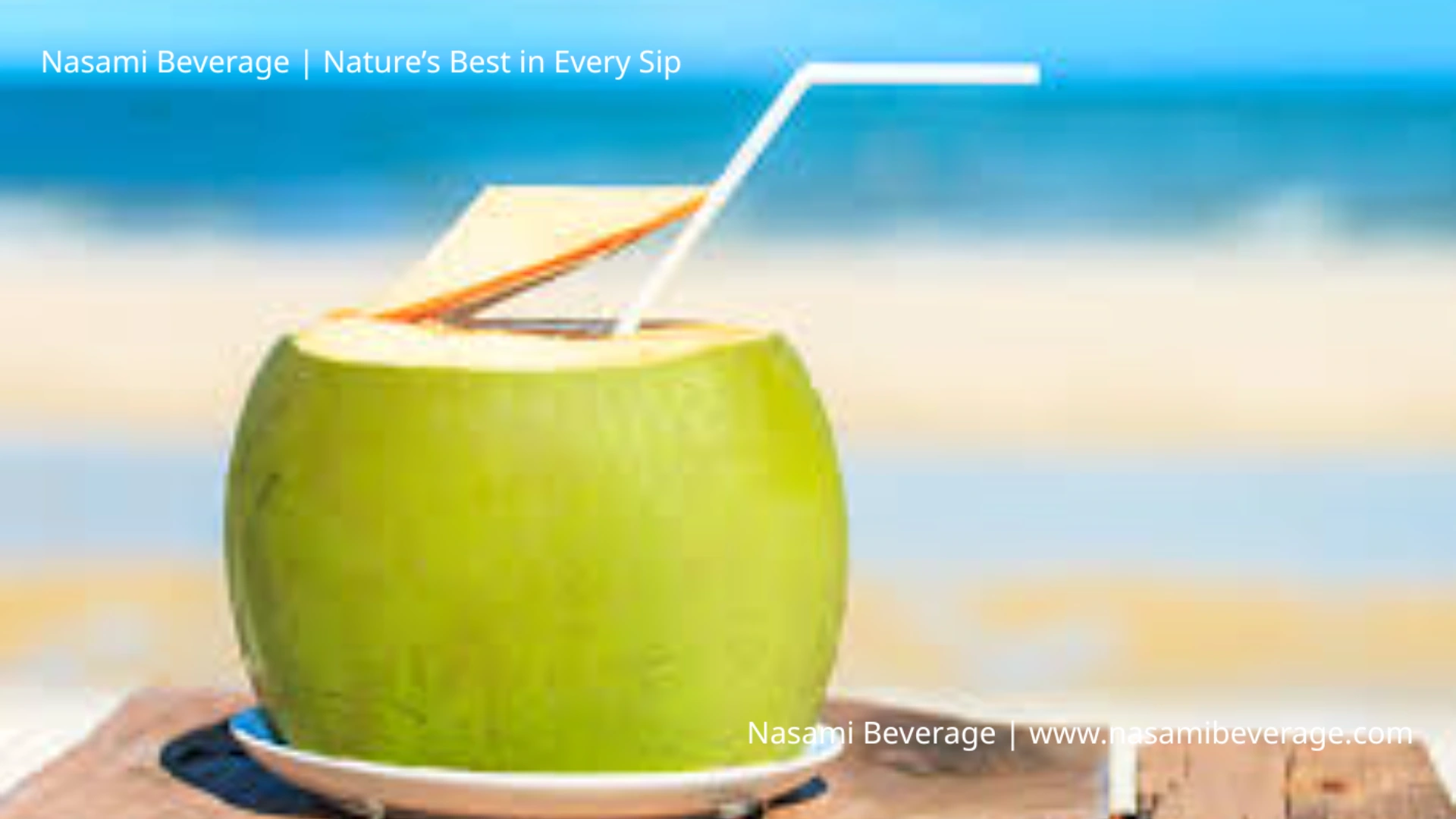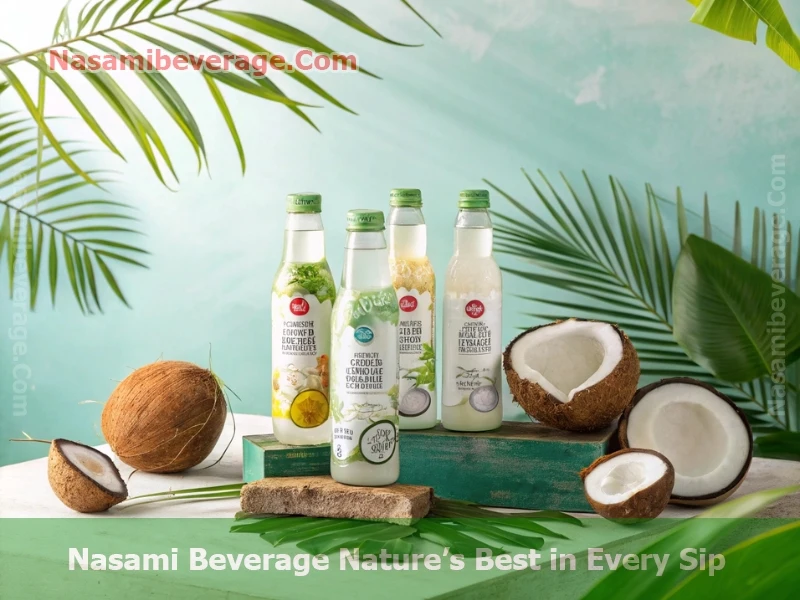What is Bai Coconut Water?
Bai Coconut Water is part of the brand’s “Cocofusion” line. These beverages are marketed as an “antioxidant infusion,” combining the flavor of coconut with other fruit essences. The brand’s core appeal lies in its key marketing claims: offering a flavorful experience with only 1 gram of sugar and 10 calories per serving, making it a popular choice for those looking to reduce their sugar intake without sacrificing taste.
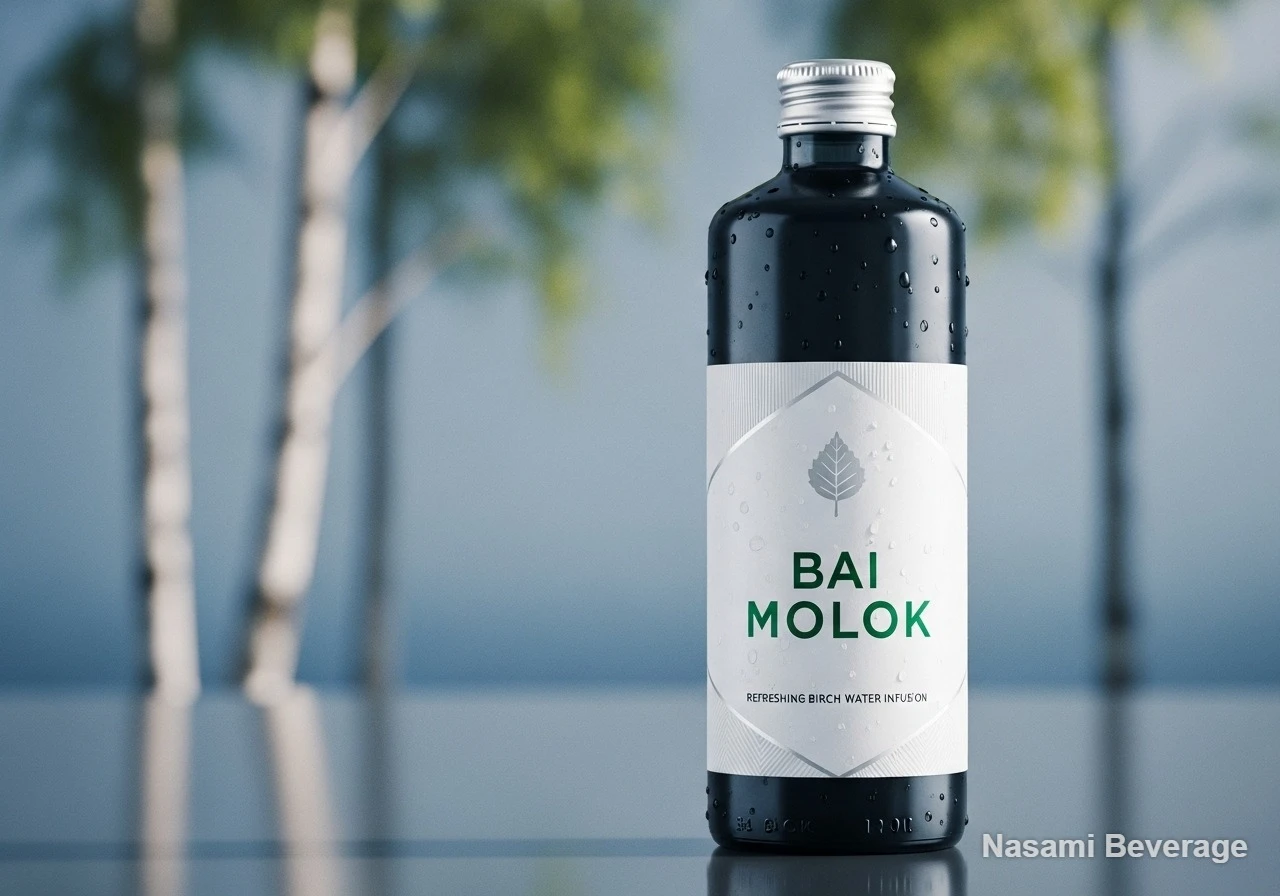
A Deep Dive into the Ingredients
To determine if Bai water is good for you, we must first look inside the bottle. A typical Bai Cocofusion drink contains a blend of filtered water, coconut water concentrate, and a proprietary sweetener blend.
Coconut Water Concentrate vs. Fresh Coconut Water
Bai uses coconut water from concentrate rather than fresh coconut water. This means the water has been heated and reduced to a syrup, then rehydrated later. This process can affect the nutritional profile and taste when compared to the best organic coconut water, which is minimally processed.
The Role of Natural Sweeteners: Stevia and Erythritol
To keep calories and sugar low, Bai uses a blend of erythritol and stevia leaf extract. Erythritol is a sugar alcohol that the body doesn’t fully metabolize, so it contributes very few calories.[1] Stevia is a high-intensity sweetener derived from the plant Stevia rebaudiana.[2] While both are generally recognized as safe, they contribute to the ongoing discussion around sugar alternatives.
Antioxidant Sources: Coffee Fruit and Tea Extract
The “antioxidant infusion” comes from coffeefruit extract and white tea extract. Antioxidants are substances that may protect your cells against free radicals.[3] While these ingredients do contain antioxidants, the overall health impact from the amounts present in a single beverage is a subject of debate.

Nutritional Profile of Bai Coconut Water
The Bai Coconut Water nutrition facts are a major selling point. A standard serving contains just 10 calories and 1 gram of sugar. It also provides a modest amount of electrolytes, including potassium, which is important for hydration and muscle function.[4] This profile makes it an attractive option for those monitoring their calorie and sugar consumption.
The Potential Health Benefits of Bai Coconut Water
When asking “are coconut water good for you,” it’s important to consider the context. Bai’s primary benefit is as a healthier substitute for sugary sodas, juices, and energy drinks. By switching, consumers can significantly reduce their daily intake of added sugars and calories. The presence of electrolytes also offers some hydration benefits, making it a potentially better choice than water for replenishing minerals after light exercise.
Potential Downsides and Considerations
Despite its benefits, there are some considerations. For some individuals, sugar alcohols like erythritol can cause digestive discomfort, such as bloating or gas, especially when consumed in large quantities.[5] Additionally, some Bai products contain caffeine from the tea and coffeefruit extracts (around 35-55mg), which may not be suitable for caffeine-sensitive individuals or those who want a purely hydrating, non-caffeinated drink.
Bai Coconut Water vs. Other Healthy Drinks
How does Bai stack up against its competitors? Compared to pure coconut water or plain coconut water, Bai is more processed and contains added sweeteners and flavors. Traditional coconut water typically has more calories and natural sugar but also a higher concentration of naturally occurring electrolytes. When analyzing a product like Vita Coco, people often wonder, is vita coco actually coconut water? Yes, and it often has fewer ingredients than Bai. Compared to sports drinks like Gatorade, Bai has significantly less sugar. However, for intense athletic activity, the higher sugar and sodium in sports drinks are specifically designed for rapid energy and electrolyte replenishment, a role Bai is not formulated to fill.
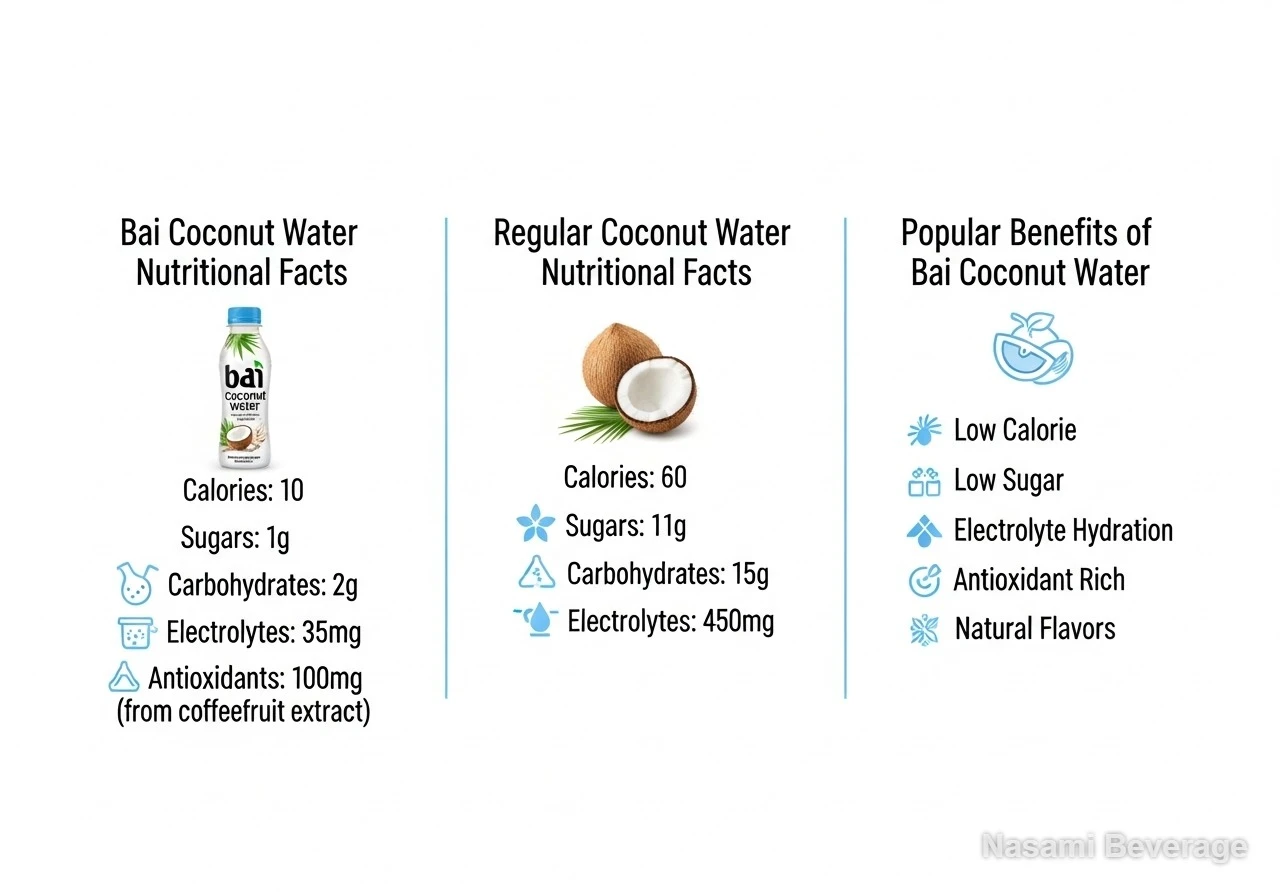
The Verdict: Is Bai Coconut Water a Healthy Choice for You?
So, is bai coconut water good for you? The answer depends on your individual health goals and diet. If you are looking for a low-calorie, low-sugar alternative to soda to help you reduce your intake of added sugars, Bai can be a reasonable choice in moderation. The question of is coconut drink healthy is complex, but for many, Bai represents a step in a healthier direction. However, for those seeking pure, natural hydration, plain water or unprocessed coconut water remains the superior option. Knowing what is coconut juice good for in its natural state helps set a benchmark for comparison.
Frequently Asked Questions (FAQs)
Is Bai Coconut Water good for weight loss?
Bai Coconut Water is low in calories and sugar, which can make it a suitable choice for a weight loss diet when used as an alternative to sugary drinks. However, it should not be considered a magic weight loss solution and should be consumed in moderation as part of a balanced diet.
Does Bai Coconut Water have caffeine?
Yes, some Bai beverages contain caffeine from tea and coffee fruit extract. The amount is typically around 35-55mg per serving, which is comparable to a cup of green tea.[6]
Can I drink Bai Coconut Water every day?
While it can be a healthier alternative to sugary sodas, it’s recommended to drink Bai in moderation. This is due to the presence of sweeteners like erythritol, which can cause digestive issues in some people if consumed in large amounts. Plain water should still be your primary source of hydration.
Is Bai Coconut Water suitable for people with diabetes?
With its low sugar content, Bai can be a better option than many other sweetened beverages for people with diabetes. However, it’s always best to consult with a healthcare provider before adding new products to your diet.
